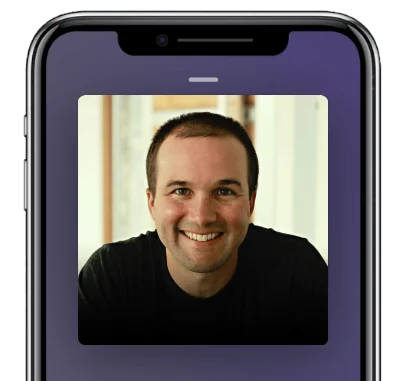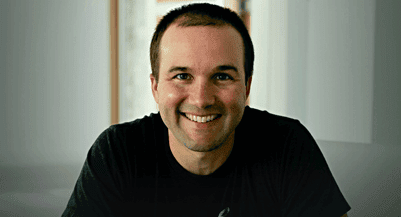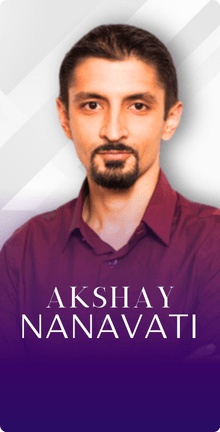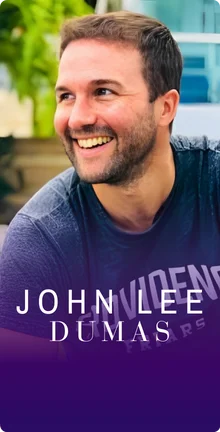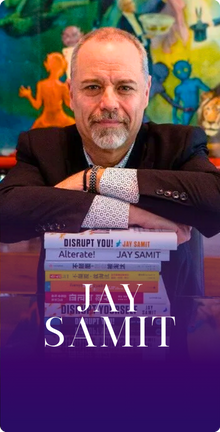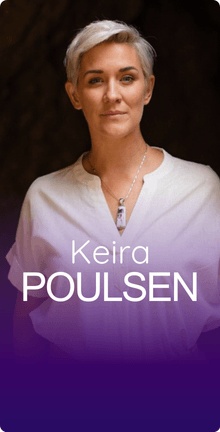In this Episode
- [00:39]Stephan introduces John Lee Dumas, the founder, and host of Entrepreneurs on Fire. Entrepreneurs on Fire is now a top-ranked podcast, getting over a million downloads a month.
- [04:30]John talks about the “aha!” moment he had while writing his book, The Common Path to Uncommon Success.
- [07:57]John gives away his secret to a great-sounding podcast.
- [11:26]John shares the inspiration behind his open-book management approach to his business.
- [15:42]Stephan and John discuss the book, The Pleasure Trap by Alan Goldhamer and Douglas J. Lisle.
- [18:43]Why did John and his wife move from California to Puerto Rico?
- [23:21]John expresses his passion for clean energy and talks about his own contributions he has at home.
- [26:57]John talks about what he thinks might be a problem in the future in the economy and ecosystem.
- [30:53]How does Tim Ferris’ book, Tools of Titans, compare to John’s book, The Common Path to Uncommon Success?
- [33:27]Visit John Lee Dumas’ The Common Path to Uncommon Success website at uncommonsuccessbook.com to learn more by reading his book’s first chapter.
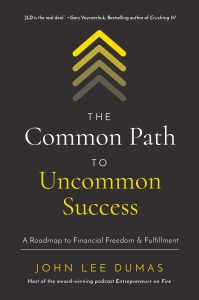
John, when does the book come out?
March 23. And Stephan, the one goal in my life is to make my book worthy of your bookshelf.
Thank you. I think we can do that. You know, I have it on Kindle, and once I get back to the States, I’m going to be putting a physical copy on my bookshelf. Thank you for joining. And I’d love to know, first of all, what was the fire in your belly to create a book about uncommon success? What was your calling with regards to this book?
Stephan, since 2012, I’ve interviewed over 3000 of the world’s most successful entrepreneurs. I’ve learned so much from them, and I’ve been able to apply it to my business, which has been a multi-million dollar business now for eight years running. But man, I still get so many amazing questions from my audience every single day that are based around the same ten questions. These hundreds into thousands of emails every day, week, and month can’t be answered by one human being. There’s no time in this world to do that. But my heart goes out to these individuals because these were the same questions that I had when I launched, and I had to find out the answers the hard way through interviewing 3000 successful entrepreneurs. So I said, it’s time for me to sit down, take these thousands and thousands of hours of conversations that I’ve had and learn from and boil down the common core foundational principles that successful entrepreneurs share.
When I wrote it down and boiled out the fat, and combined the similarities, there were 17 core foundational principles that all entrepreneurs share. I put it into a step-by-step chronological roadmap. And I looked down, and I said, “That is a 17-chapter book. This is a 17 step by step roadmap to financial freedom and fulfillment. Now I just got to write the thing.” And I found a publisher, HarperCollins, I got an editor, and I sat down. And for two hours every day, for eight months, I wrote this book. Four hundred and eighty hours later, this book was finished; 71,000 words, 273 pages. The Common Path to Uncommon Success, a revolutionary 17-step roadmap to financial freedom and fulfillment. To answer your question, this book finally and thoroughly is the solution to my audiences’ biggest problems. It is the roadmap that they need to get the answers that they want.
Tell me, what would be something that you got out of this book as you were writing it in those 480 hours? That was an epiphany, transformation, or huge “aha” moment that changed your life and your wife’s life forever?
Entrepreneurship is years of tweaking, adjusting, pivoting, improving, failing, learning to get the business to where it is now. Share on XYou know, that’s a good question. But I’ve always known you to ask good questions. And when you said that, like what came up for me is this. This book is 71,000 words, the average chapters 3550 words. Step 7, Chapter 7 has 13,500 words; it blows out of the water quantity-wise, the other 16 steps, 16 chapters. It surprised me. It was a true “aha” and epiphany moment because I knew, and I want to be honest like I knew that we did Step 7 amazingly well. Step 7 is designing your content production plan. I knew we did it well, which is why we’ve been running a multi-million dollar business for eight years in a row. You can’t do that without a good content production plan. When I finished writing that chapter and stepped back, I was like, “Oh, wow, this is intense.” This is 13,500 words; this is the step-by-step processes, the exercise, the templates, the systems, the tools, the automation. This is a work of art.
Other people are struggling and not winning at a high level because their content production plan is terrible.
I want to be clear; our content production plan was terrible when we started. It’s taken us a decade of tweaking, adjusting, pivoting, improving, failing, learning to get it to where it is now, which is fantastic. That was such a huge “aha” moment. That’s one reason why we went to such a high level, every single month. We’ve had 91 months in a row, over $100,000 of net profit. Our content production plan is fantastic. That’s why we’re winning at such a high level so consistently, and why other people are struggling and not winning at a high level is because their content production plan is terrible. Not just bad, it’s terrible/nonexistence. Well, you honestly fit into that category, if you’re hearing my voice and seeing my face, your content production plan is terrible, but that’s okay because mine was too. Mine was too. It was. But this is the 13,500 words that you need in Step 7, Chapter 7, to get you to where you need to be. It will change your life.
Give me an example of something in your content production plan that still sucks.
Not much, to be honest, these days because it’s been ten years of working, tweaking, adjusting, and pivoting on it. The one thing that I can say could still be improved in our content production plan is the video side. We have never done video well. Frankly, we may never do video well. Even though it does suck as part of our content production plan, I’m willing for it to suck because, to be great at something, you have to suck at other things. And I’m willing to suck at video if it means that my audio content, which is our focus, the audio-only podcast is great, fantastic, and good as it can be. But at the same time, we are a visual species where we live in a visual world, and it’d be awesome if I could figure out in my content production plan to make some good video, but I can’t. It sucks.

Well, I know that you have an audio podcast and consider audio to be important to invest in the equipment. It sounds like from the way that you speak that you’ve invested in your voice as well. What have you done to upskill and uplevel your voice, speaking ability, tonality, and how you engage with your interview subjects?
Tonality, diction, like just how you’re speaking, how you pronounce words, how you emphasize different words, it all comes from putting in the reps. You just have to put in the reps. That’s why I knew when I launched back in 2012 that I was going to be a terrible podcaster because I’d never put in the rep. So I was not going to be good, and I wasn’t good. And guess what I wasn’t going to get good doing four episodes per month, which is what most people were doing. I had to put in the reps. I had to catch up to people who I admired who were already out there doing great things. So I decided to put in the reps to do the work and do a daily podcast seven a week, 30 a month, 365 per year by putting in the reps. Something that people do so little in our world, which is shocking to me, is they don’t work on their craft. They don’t try to hone their interview skills or speaking skills. They don’t put any time on that, like, “John, how do I grow my podcast audience?”
I’m like, “Well, you just launched a week ago. I listened to your podcast. It sucks. You want to spend advertising money to get people to listen to your podcast. That sucks because you’ve never worked on interviewing people, you don’t know how to enunciate, your diction, tonality, you’re a bad interview, you’re a bad host. All of which, by the way, I was back in the day. So it’s okay that you are, but what if instead of spending all your time on Facebook trying to do X, Y, and Z, you spend time working on your craft, which is being a speaker, being a talker, being a communicator, interviewing, like hosting a conversation being a conduit of information. What if you did that?” And he’s like, “Oh, yeah, I guess I could do that.” I’m like, “Yeah, not only could, you should. And you need to because otherwise, your podcast is always going to suck. And you can spend all the money in the world getting as many people to listen to it one time, but nobody’s coming back. Nobody will tell their friends about it because nobody wants to listen to a lousy podcast with a lousy host. So work on your craft. And I guess I’ll say one other thing. I’m a big fan of Roger Love. That guy’s got some great content out there about how to speak, how to use your words, creates voice exercises as well. I did 54 interviews last week. This is the 47th interview I’m doing this week, yet I still have my voice. Though not as crisp as would be with normal speaking, it’s still here. Thanks for that.
You can't do everything at once and expect to be the best. To be great at something, you have to suck at other things. Share on XSo are you getting coached by Roger Love?
Never one on one, but he does have a lot of great courses that you can just buy, like an Audible. He’s written a lot of great books. He has a lot of great YouTube videos as well. So there’s a lot of great content out there. I’d love to be coached by him one on one someday, and maybe I will make that happen. But I’ve been coached virtually by him for years now.
Well, he’s got this Master Presenter mastermind, which I’m in, which is fabulous. And you do get some one-on-one time with him.
I want to learn more about that. If you send me some info, I love to look into it.
Oh, for sure. You’d love it. He’s on another level. Now, one thing I hear from you is a lot of numbers. I think that you like tangible, quantitative reporting and open-book management. It is part of your thing because you share all this information about your numbers with your listeners, fans, and website visitors. That kind of transparency is laudable, and I’m very grateful for that because I used to look at that long time ago and see where you were heading and thinking, “Okay, what can I do to replicate some of John’s success?” Tell me more and tell our listeners more about what inspired you to take that approach to share your numbers like that and how that has shaped and changed your business and your destiny.
I went to college on an army scholarship. I then spent four years as an active-duty officer in the US Army. After that, I tried law school, corporate finance, commercial real estate, like I had this very traditional kind of career path, even though they were all failures in a lot of ways–minus my army experience, but post-military, a lot of failures. I still kind of had this very traditional mindset. Frankly, I just didn’t think you could make money online without being scammy or slimy. I mean, I just didn’t know any better. I didn’t know if you could or couldn’t. I just assumed you really couldn’t. And this was like back in 2010-2011. And I tried to educate myself. So I was doing a lot of searching online, and I came across this guy, Pat Flynn, Smart Passive Income. And he was just publishing these income reports. And I’m like, “Oh, my god. You could be a genuinely good guy, make real revenue, and add value to the world.” And it was like hope that was inspiring and was motivational to me. And I remember at that moment, Stephan, being like if I ever find a way to make money online, I want to be that same kind of hope and inspiration that Pat’s being for me right now to other people. That, to me, would be amazing.

I launched my podcast a couple of years later, and by the way, I did not have an income report right away because it wasn’t making any money. But when I got to the place where I was generating revenue, I turned to Kate. I said, “I think now’s the time to start publishing income reports, because I think that we can be an inspiration to others, like Pat was to me back in the day, like when I needed it, to believe that you could be a good guy giving good value in this world, and still generating revenue to be able to support yourself and support your family, etc.” That was 91 months ago. We started publishing our monthly income reports 91 months ago. We bring our lawyer on to give a legal tip, and we bring our accountant on to share our tax tip. We publish super detailed income reports. I think it’s one of the best parts of our business.
If I was ever told for some reason, like, “You have to stop publishing income reports,” like, for whatever reason, I will still privately publish them because it helps us keep such a finger on the pulse of our business of what’s working and what’s not. And really understanding, “Okay, this is meaningful to our business,” or “This is slipping in our business, we need to figure out why.” And so there are not months that can go by, with no holes forming in our ship on notice. Like we see these things right away. And they are the most trafficked part of our website. People love coming and seeing the income report. So they can kind of see what’s working for us, they can emulate our successes. But just as importantly, they can see what’s not working for us and what we’re failing in because we’re always sharing our failures and our mistakes, too, so they can avoid our failures. And I just love the open transparency of them, and I don’t see anything stopping them anytime soon.
Do you use them internally with your team to make sure that everyone’s kind of playing off of the same game sheet or scoreboard? Do you have open-book management kind of meetings and things like that?
100%. We’re very just across the board, for everything, for revenue, traffic, downloads, all the things that matter for our business. All the KPIs are open-book.
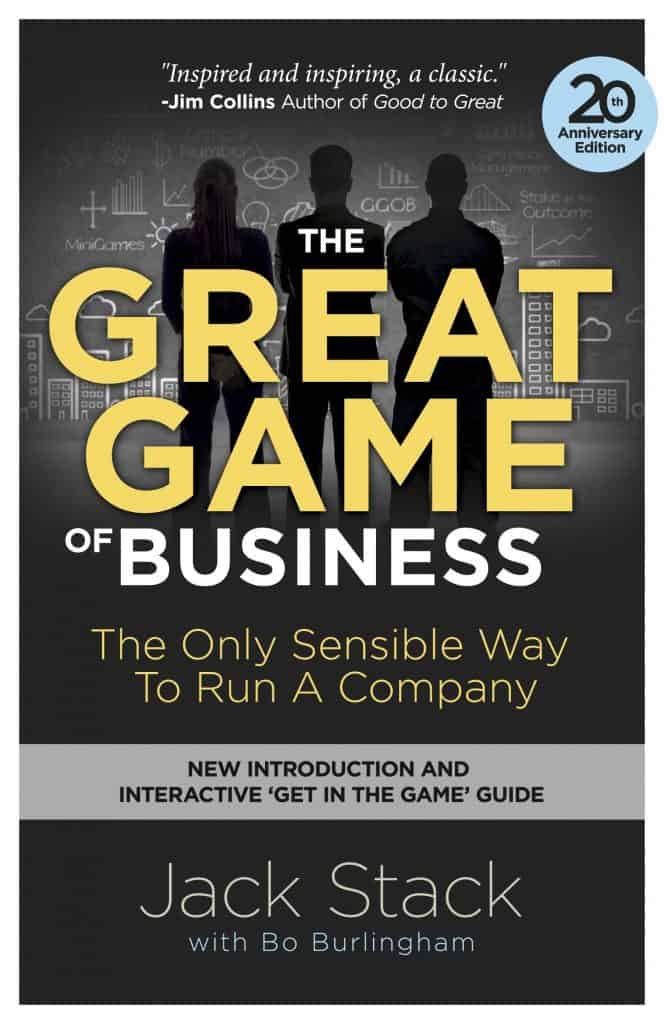
Wonderful. Did you ever read the book by Jack Stack, The Great Game of Business?
No.
Oh, he’s kind of the godfather of Open-Book Management. It’s a great book. I recommend it.
I have a book recommendation for you, The Pleasure Trap.
Oh, nice. Tell me more about that.
Real quick. It’s more like in the health and wellness space, but it’s also just on the overall human brain psychology of things. It’s interesting how he breaks it down. The guy’s name is Alan Goldhamer. Why we do what we do when it comes to eating, exercising work, the whole nine yards, and it’s fascinating.
Oh, cool. What’s something you got out of the book?
That human beings are only doing three things in life, ever. You’re either seeking pleasure, avoiding pain, or conserving energy. Like you’re only doing one of those three things. At all times, you can check the block on one of those three things. And when you think about it that way, life can be really simple. And you can start to use that to your advantage.
What’s something that you’re doing that you weren’t doing before reading the book?
On nutrition, I am able to identify why my brain is so craving things like ice cream, or carbs, or just refined carbs and sugars overall, in general. And that’s the biggest thing I’m trying to fix in my life, my nutrition aspect. I’m probably in the top 10% of the healthiest people I know; my nutrition is probably in the top 10%. But I want to be in the top 1%. That’s where I’m going with my life.
Have you cut sugar completely out of your diet? Or are you still working on it?
Still working on it, not even close. I had a pint of Ben & Jerry’s last night. For full transparency, I had a pint, maybe like a pint and an eighth, because Kate couldn’t finish hers. But again, right now, this is kind of how it worked. I’m like, “You know what, I’m in book launch mode right now. I am going to sprint to the end. April 1st, after the book launch, is done and all this stuff. Now it goes into full pleasure trap mode. So watch out, world.”
I think you need to do a nutrition transparency report on your website every week.
I’ll do that.
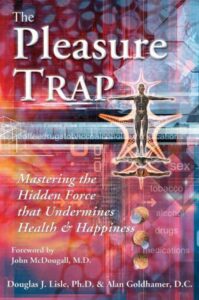
I’ll look forward to seeing that. That’d be cool. Let’s talk about financial freedom, and you’ve done something that not very many people have. You have moved to Puerto Rico to cut your tax bill massively. And I would love to know what you’re getting out of it and what you’re giving up? Because there’s always a give and take. What do you miss the most about now being essential–because you’re in Puerto Rico for 181 or whatever the number of days is, that’s the requirement, and if you fall below that, next thing you know, you’re going to be paying taxes back to the US government? Let’s talk about that.
2013 was the first year that I started making a lot of money. 2014-2015, I made multiple millions of dollars, both years living in California, and life was good. But at the end of each year, my accountant would send me an email and say, “John, don’t hate me. Don’t kill the messenger. Here’s a seven-figure check, you have to write to the government, to Cali, and to the federal government.” And it just broke my little entrepreneurial heart because I worked so hard. And when I sat down and did the math, I was like, “Okay.” I thought I was an entrepreneur, working for myself. I was an army officer for four years, eight years total; four active, four reserves like I thought I was done working for the government. But now, I’m working for the government.
We all are.
Well, I’m still working for the government in California until June 16, every year, because that’s the 51% I was paying in taxes. So it wasn’t until June 16th that the money I started earning was my money. Of course, I still had my salaries and expenses and infrastructure and all these things to pay with that money. And it was just how in the world do you build wealth? And you know, to be frank, I have come to a conclusion 100% through firsthand experience and talking to a lot of people, you can make money anywhere in the world. You can make a lot of money anywhere in the world, but you can’t build wealth, paying 40-50 plus percent in taxes. You just can’t build true wealth. Just not going to happen. And so I said, “Okay, let’s figure out something that I can legally do to defray some of these costs.” And the long and the short of it is I found that I can move to Puerto Rico, live there 183 days a year, and if I checked that block, I was going to go from 51% in total taxes to 4% in total taxes, immediately giving myself a 47% pay raise. And so I almost immediately moved when I heard those, literally, from hearing about it to moving was like two months.
I hope Kate had a say in this as well.
You know, what I said to Kate was this, I said, “Listen, you claim you want to be adventurous, and you claim you love to travel, and yet you’ve lived in San Diego your whole life. You’re almost 30 years old. Let’s go to Puerto Rico for a year. If we hate, we’ll move back. But I need to be with somebody,” and there wasn’t an ultimatum in there, but it was a challenge. Like, “I need to be with somebody who’s able and willing to do something like this.” Like, “This is who I am, and I want my significant other to be the same way.” And she was like, “Absolutely, bringing it on. Let’s go.” She was cognizant of the fact she was leaving her family and where she lived her whole life behind. But she was ready for the adventure and knowing that we’d come back after a year if it wasn’t the right thing. And so, we moved, and there are pros and cons for sure. It took us a few months to kind of find our place on the island. So that was an interesting and fun time looking back on it. But at the time, there are some annoying, uncomfortable things to work through, as you’re trying to live out of a suitcase and find an internet that works, not knowing anybody. But then we kind of found our sweet spot. And you know, there are still things to this day that we miss, just being in San Diego, everything’s their first like Uber, delivery of food, all the things first world.
You can't run a multimillion-dollar business for several years without having a foolproof content production plan. Share on XWhole Foods?
Yeah. Trader Joe’s. Luckily, we do have a Costco, which in Puerto Rico is amazing. It’s just fantastic that we have one of those here. But yeah, no Whole Foods, no Trader Joe’s, which are two big negatives. And just again, being in this first-world country because Puerto Rico is a third-world country. Being in a first-world country where you just have power all the time and not having to worry about English being the second language. And all the things you take for granted sometimes, but at the same time, it’s kind of helps you grow as a human being. We’ve grown to love Puerto Rico overall, despite some of its cons. And it does have plenty of cons. But this is a statement that I made about two years ago, it wasn’t overnight, but after about three years of being here, I said. “They could take away the tax benefits tomorrow. And I would never leave Puerto Rico.” And I honestly mean that. There’s no place in the world I’d rather live than Puerto Rico. And I’m not saying that won’t change in the future, but that’s my current, honest heart right now.
Well, you must not have ever been to Costa Rica, then?
You know, Costa Rica is a beautiful place. I’ve been there. I loved and adored it. But without the addition of the 4% tax, Costa Rica does not interest me at all.
Okay. All right. And there are a lot of crypto millionaires and billionaires there in Puerto Rico.
“Crypto Rico,” baby!
Are you one of those crypto people?
I wish. I heard about cryptocurrency, like back in 2014. And it didn’t make sense to me. I didn’t have that much disposable income at the time anyways. And I just never invested heavily in it. So I’ve completely missed the crypto boat to date. And if an opportunity comes that I think is worthy, I will happily join in like I’m starting to find these NFTs pretty interesting. I can’t say that I know what these non-fungible tokens mean. Like, I kind of get it, but I haven’t done too much deep diving into it. But I think there are some interesting concepts there. And to me, it just blew me away, like this world that we live in, now more than ever, like in the last like six months. It’s like there are a million ways to become a mega-millionaire/billionaire. And I feel like that wasn’t the case even a couple of years ago. It’s a really interesting world.

Yeah, it sure is. Where do you see things kind of going off the rails? Obviously, the pandemic has really messed with the economies and with people’s health and certainty, and a lot of people are living in fear, unfortunately, but what besides that, do you see as systems that are fundamentally broken, things that you would like to kind of step up and help solve and fix? What are you passionate about on that kind of level?
I’m pretty passionate about clean energy. I love the idea of clean energy. My whole house runs on solar power. I have 41 panels, three Tesla power walls in my garage. I love that I run off of the sun. And I’ve also kind of taken the next step. And I have this awesome atmospheric water generator in my house that makes eight gallons of water a day from humidity in the air. So now I’m not drinking groundwater that’s coming through rusty pipes and with ground contamination and whatever crap the municipals put into the water sources. I’m not consuming any of that, which I love. I’m kind of in this situation now, too, where I have power because I have sun. In Puerto Rico, you must always have sun. And I have water because as long as I have power, I can make eight gallons of unbelievably freshwater a day. And now I’ve got 12 months of MREs, these meals ready-to-eat, that are 50-year shelf life up in my attic. I kind of got a lot of blocks checked right now in surviving a near catastrophe.
Puerto Rico was known for back in 2017, we had a devastating category five hurricanes, which put this island out of commission for at least four months. And you want to be prepared for situations like that. I do believe the phrase that we are literally like 24 to 48 hours away from crisis. And what that means is water turns off in New York City, that places like 48 hours from absolute pandemonium, And just 48 hours because the water gets turned off, because something that’s not able to be fixed quickly. We live in an amazing world, but I think sometimes people forget how fragile it truly is. And that’s something that I saw firsthand when I was in Iraq for 13 months. I’m like,” Oh, it’s 2003.” But I’m looking around and thinking, “This could be 3000 BC right now in a lot of places.” Like it’s crazy.
Yeah. Where do you think the average person is going to run into the most problems? Is it lack of enough water, energy, battery power, or not enough spare foods or food with a long shelf life? Where are they going to get stuck first?
Human beings are only ever doing three things in life. You're either seeking pleasure, avoiding pain, or conserving energy. Share on XYeah, we’re definitely wandering outside in my area, what I would call “expertise,” but it is things that I do care about and things that I do and spend some time on. But I think that water will be a massive issue going forward for certain places and certain areas. There’ve been some great documentaries on Netflix and other places with literally cities counting down to they’re out of water. And they know, but like, what if other things happen, contamination to water sources and stuff like that, I mean, again, things get scary quick. I’m not worried about food, you can go 40 days without food like nobody wants to, but you can. I’m talking about water. You know, of course, the air is even more important than that. But I don’t see something to be scared of right now on that. But water is significant. Frankly, I think super inflation could be a scary thing for Americans. Thinking that their dollars will always be worth something similar the following year, maybe 2-3% inflation. The Weimar Republic of Germany, Venezuela, Turkey, Argentina, super inflation is real. Almost every country in Africa. The day they print a trillion-dollar bill, my eight figures of net worth right now becomes the same as somebody who has $2 in the bank because we both have nothing, essentially.
Money is becoming less valuable the more it’s being printed. And yeah, it’s kind of a house of cards, I agree. I know we have just a few minutes left. I’d like to kind of get a bit metaphysical. What would be something that has been a powerful spiritual epiphany for you?
I would say that number one, we are all just energy. Like, that’s all we are, you, me, everything around us, it’s just energy. Number two, this “pleasure trap” kind of like, again, like with some interesting things about how at the end of the day, we’re just made up of these tiny little genes within us, and the only thing that they care about is reproducing. That’s all that matters. And when you look at any animal, even human beings, we’ve kind of gotten to a different level of intelligence, which makes some people make different choices. But almost every single animal, there is one reason for what they do, they eat, they sleep, they do all these different things, so they can reproduce and pass their genes on. When it comes down like that, you start to think about the only thing that we’re kind of drawn to do in this world. It’s pretty interesting. That would be the two things.
What would be a higher-level way to look at our drive to live, reproduce, and so forth? Is there a soul, consciousness that is separate from that that survives the body in your view?
No. I think it just turns off. We’ll all become one with Earth again, and our DNA is done what it needs to do, which is reproduce, and the light just goes off.
Well, I have a different view on that, but I respect your opinion.
In learning you teach, and in teaching you learn. Share on XThat’s the beautiful thing about this world; you can have a different view, and hopefully, I live long enough to have a view more similar to yours, or I’m assuming it is because that’d be a more enjoyable view to have.
Yeah. Okay, one last question. There’s a book called Tools of Titans by Tim Ferriss, where he took a lot of learnings and lessons from many guests he interviewed. How does his book compare to yours? What are some commonalities, and what are some big differences?
Tim interviewed hundreds of unbelievably successful entrepreneurs and essentially transcribed those conversations and then put them into a book. The Common Path to Uncommon Success is me for a decade, interviewing 3000s successful entrepreneurs and then actually sitting down and being very intentional about the commonalities that all successful entrepreneurs have in common? What are the commonalities that successful entrepreneurs share? And I spent a lot of time writing down exactly all these commonalities, boiling out the fat combining the similar ones. And what I was leftover with 17 core foundational principles that successful entrepreneurs share. Tim’s book, Tools of Titans, is like, “Okay, this individual, this is their road to success, this is the tools they use to be successful, and this is what they believe in, person A; done. Person B; done.”
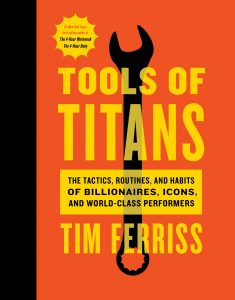
This was 3000 people; we’re all energy, mashing all of their genius together, boiling it down, having 17 core foundational principles being leftover that we all share, and then putting it into a chronological step by step order, starting with the step one of what successful entrepreneurs did to start their journey to financial freedom and fulfillment all the way through step 17. Which is pretty fitting on one of the topics we talked about earlier, which is keeping the money you make. And that is what The Common Path to Uncommon Success is. It is a 17-step revolutionary roadmap to financial freedom and fulfillment, which takes people from step one, all the way to step done, which is financial freedom and fulfillment. Tools of Titans is the book you can pick up and say. I want to learn about this individual Tim interviewed, what makes them awesome, what they do for productivity and focus, and all that jazz. The Common Path to Uncommon Success is a 71,000-word roadmap that I wrote in 480 hours, every one of these words to guide you to your version of uncommon success.
All right. Well, thank you for that. And for our listeners who want to pick up the book and support you and your mission to change lots of lives. And I think there might be some bonuses for buying the book. Is that right?
UncommonSuccessBook.com, you can check out the amazing endorsements from Gary Vaynerchuk, Seth Godin, Neil Patel, Erica Mandy, Dorie Clark. You’ll be able to see the first chapter of the book, which I give away for free there to see my writing style. You’ll see all five amazing bonuses while they last because there are diminishing bonuses. Hopefully, you get there in time to catch all of them or at least some of them. And then you’ll also see me jumping in my pool here in Puerto Rico with all my clothes on and then telling you about the book, UncommonSuccessBook.com.
All right, John. Well, best of luck with the book launch. I’m very happy for you. You got this great book, and you got a great publisher, and you have put in the hard yards. So congratulations.
Thank you, Stephan.

